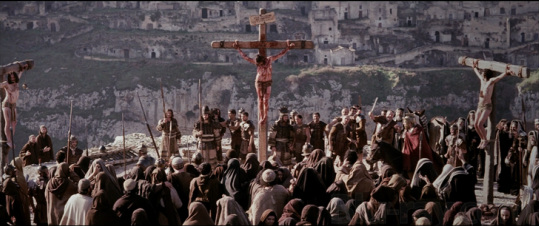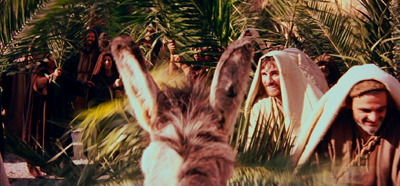|
Overview:
The meaning of the word "love" has seemingly been lost in our post-modern age and culture has rushed in to fill the void. However, there is a biblical understanding of the term, at least when it is used in Scripture. So when 1 John 4:7-12 says that "God is Love" it's quite clear that John means that "Jesus Christ on the cross as the propitiation for our sins" is the natural overflow of God's character. Leave Feedback! A sermon I preached for a Homiletics class. I'm still growing as a preacher, so please leave some constructive feedback in the comments! Click "See More" for example feedback:
2 Comments
Jesus rose from the dead on Sunday resulting in THE day of Conquest! When the women visited the tomb they found the soldiers gone and the stone rolled away...and it was empty. When they reported it to the disciples, Peter & John found it empty. Then Jesus started making many post resurrection appearances, first with Mary Magdalene & the other women, then the two disciples on the road to Emmaus, then finally to the disciples in multiple instances starting in the Upper Room. Jesus commissioned His disciples to continue His mission to all the nations of the world in his authority. He then appeared to them over a period of 40 days opening their minds to all the Scriptures said about Him. These 40 days included a trip to Galilee to receive the Great Commission, and then again in Jerusalem He gave them the Great Commission (again!) before blessing them and ascending to Heaven awaiting His second coming.
Saturday was the Sabbath, a day of rest in which no work was done...except the guards who were busy guarding the tomb, but they weren't Jews.
Good Friday, THE day of consummation, began early with a trial with Annas, a Jewish trial at Caiphus house (where Peter denied Christ), a trial in the temple with the Sanhedrin (when Judas hung himself), a Roman trial with Pilate, a Galilean trial with Herod Antipas, & final trial with Pilate again as he tried to avoid crucifying Christ via flogging, scourging, and releasing Barabbas. Once convicted for sedition (misinterpreting Christ's kingly claims), Christ was mocked by Roman Soldiers with a crown of thorns, then stripped and beaten. Christ was then led to Golgotha carrying His own cross (until Simon of Cyrene had to intervene), where He was nailed to the cross, which was erected between two criminals and bore the message “This is Jesus of Nazareth, the King of the Jews.” The soldiers, Pharisees, & crowds derided Christ, but He prayed for their forgiveness. When the thief repented Christ promised him paradise. Christ then assigned his familial responsibilities to John. At noon when darkness covered the land Christ lamented separation from God as He took on God's wrath. Christ then fulfilled Psalm 69:21 saying “I thirst.” Christ died after two final words: “It is finished,” & “Father, into your hands I commit my spirit” as Jesus voluntarily died at the completion of His mission. At His death there was an earthquake in which the temple curtain was torn and saints were resurrected and appeared to many, resulting in the belief of many including the Roman Centurion. His body pierced to confirm death, Jesus's body was laid in a tomb covered with a stone and guarded by Roman soldiers.
Since the gospels are Passion narratives with extended introductions, and the crux of the Christian faith occurred in this ten day span, correctly chronicling its key events is paramount. Only after piecing the Gospels together chronologically can a true picture of what transpired be accounted for. The events of Passion week began Friday, “six days before Passover” (Mark 12:1), in Bethany at the home of Lazarus and his two sisters Mary and Martha. The night Jesus arrived, probably after sunset, Mary anointed Jesus' feet with costly perfume, wiping them with her hair. Jesus' defends this act as preparation for His burial when Judas Iscariot complained of the unnecessary waste.
|
AuthorBrett Yardley: Categories
All
Archives
January 2019
|





